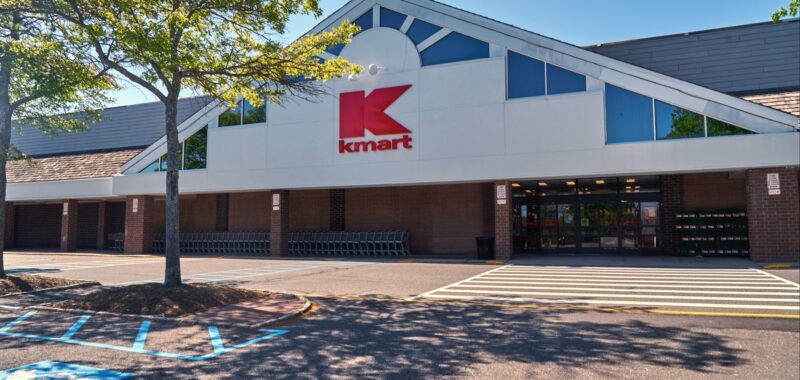Attention, Kmart shoppers: On October 20, Kmart’s last full-sized location in the mainland U.S., a store in Bridgehampton, New York, will close its doors.
That leaves just one smaller Kmart in Miami and three stores in the U.S. Virgin Islands as the only locations left — a far cry from the over 2,300 stores Kmart operated in its prime in the 1990s.
Related: Tupperware Unable to Keep Its Sales Strategy Fresh — Company Files for Bankruptcy
“Kmart was part of America,” U.S. retail history author Michael Lisicky told PBS. “Everybody went to Kmart, whether you liked it or not.”
 The Kmart store in Bridgehampton, New York. Credit: Bing Guan/Bloomberg via Getty Images
The Kmart store in Bridgehampton, New York. Credit: Bing Guan/Bloomberg via Getty Images
What happened? According to the company site, Kmart had a promising start. It opened its first store in 1962, the same year as Walmart and Target. By 1966, sales surpassed $1 billion.
However, in January 2002, Kmart filed for Chapter 11 bankruptcy protection, citing competition and failed sales and marketing campaigns. At the time, Kmart closed about 600 stores and laid off 57,000 employees.
Related: Christmas Tree Shops to Close All 70 Locations: ‘I Wish Someone Could Save These Stores’
According to a 2002 analysis, although Kmart initially grew faster than its competitors, the company’s lack of technology investments hindered its growth. Its market position trapped between the trendier Target and the more price-competitive Walmart didn’t help either, because Kmart wasn’t able to define who its customers were.
Kmart emerged from Chapter 11 in May 2003 and acquired Sears about two years later for $11 billion. Meanwhile, sales continued to drop, falling from $37 billion in 2000 to $12.1 billion in 2014. The acquisition didn’t pan out either: Sears filed for bankruptcy in October 2018, emerging from it in 2022, and now has only about a dozen stores open in the U.S.
“Sears should have never gone away; Kmart was in worse shape, but not fatally so,” Mark Cohen, former CEO of Sears Canada and former director of retail studies at Columbia Business School, told PBS. “And now they’re both gone.”
Related: Music Retailer Sam Ash to Shut Down After 100 Years in Business

